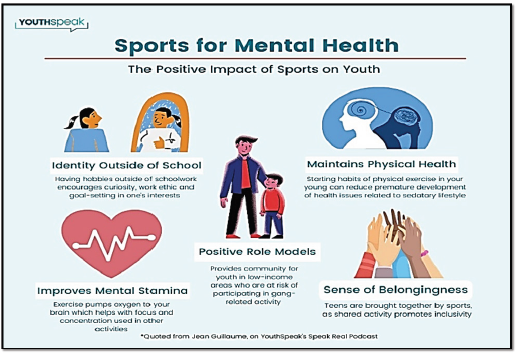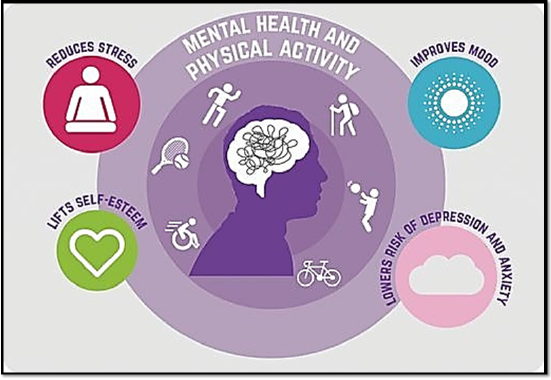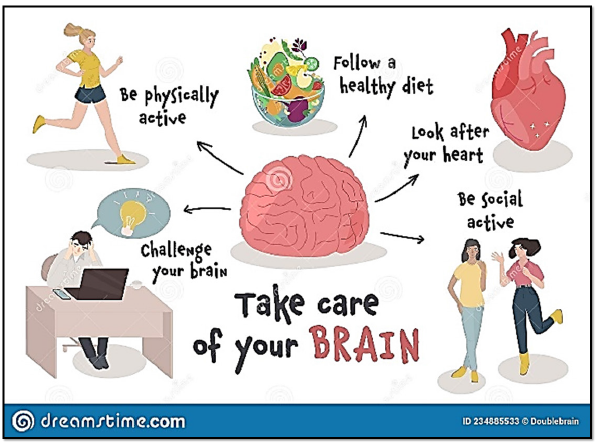- Submissions

Full Text
Research & Investigations in Sports Medicine
Healthy Habits: A Cornerstone of Good Mental Health
Waleed Ghanim Thanoon1* and Abdulrahman Mazin Hashim2
1Department of Sports Sciences, College of Physical Education and Sports Sciences, University of Mosul, Iraq
2Department of clinical nursing, College of Nursing, University of Mosul, Iraq
*Corresponding author:Waleed Ghanim Thanoon, Department of Sports Sciences, College of Physical Education and Sports Sciences, University of Mosul, Iraq
Submission: March 27, 2023;Published: April 25, 2023

ISSN 2578-0271 Volume9 Issue3
Opinion
Good mental health is essential to achieving success in all aspects of life. Healthy habits are a cornerstone of good mental health, as they can help to improve physical and emotional wellbeing. Developing healthy habits can be challenging but the rewards are well worth it in the long run.
The first step towards developing healthy habits is understanding how our daily routines affect our overall wellbeing. Eating nutritious meals, getting enough sleep, exercising regularly and taking time for relaxation or leisure activities can contribute significantly to improved moods and decreased stress levels. Additionally, establishing regular patterns for these activities helps us stay on track with our goals while also providing structure that allows us to better manage other areas of life such as work or school commitments (Figure 1).
Figure 1:

When it comes to maintaining good mental health, there are many factors to consider. Genetics, life experiences, and external stressors can all play a role in a person’s overall well-being. However, one aspect that often goes overlooked is the importance of healthy habits. These daily practices and routines can serve as a cornerstone for good mental health, helping to promote emotional stability, cognitive function, and overall happiness.
The first healthy habit that can contribute to good mental health is regular exercise. Physical activity has been shown to have a number of benefits for mental health, including reducing symptoms of depression and anxiety, improving sleep quality, and increasing self-esteem. This is largely because exercise triggers the release of endorphins, which are chemicals in the brain that promote feelings of pleasure and happiness. In addition, regular exercise can also help to regulate the body’s stress response, making it easier to manage stressful situations and reducing the risk of developing chronic stress-related conditions.
Another important habit for good mental health is maintaining a healthy diet. The foods we eat can have a significant impact on our brain chemistry, and a diet that is high in sugar, processed foods, and unhealthy fats can contribute to feelings of nutritious, mood swings, and brain fog. On the other hand, a diet that is rich in whole foods, fruits and vegetables, lean proteins, and healthy fats can provide the nutrients needed for optimal brain function, such as omega-3 fatty acids, B vitamins, and antioxidants (Figure 2).
Figure 2:

Getting enough sleep is also crucial for good mental health. Sleep is the time when the brain processes the events of the day, consolidates memories, and restores the body’s energy levels. Chronic sleep deprivation has been linked to a range of mental health issues, including depression, anxiety, and cognitive decline. To promote good sleep hygiene, it is important to establish a consistent sleep schedule, limit caffeine and alcohol intake, and create a relaxing bedtime routine.
In addition to these basic habits, there are also several other practices that can contribute to good mental health. For example, practicing mindfulness and meditation can help to reduce stress, improve concentration, and promote feelings of calm and relaxation. Cultivating a supportive social network can also provide a sense of belonging and social support, which can be important in times of stress or crisis. Finally, taking time to engage in hobbies or activities that bring joy and fulfillment can help to promote positive emotions and reduce the risk of developing depression or other mental health conditions.
While these healthy habits can be beneficial for anyone, it is especially important for individuals who are at increased risk of mental health issues. For example, individuals with a history of mental illness, substance abuse, or trauma may need to be especially diligent in maintaining healthy habits in order to promote emotional stability and avoid relapse. Similarly, individuals who work in high-stress environments or who have demanding schedules may need to prioritize self-care practices in order to avoid burnout and maintain their mental health.
Overall, healthy habits are a cornerstone of good mental health, and making them a priority can have a profound impact on a person’s overall well-being. By incorporating regular exercise, healthy eating, good sleep hygiene, mindfulness, social support, and enjoyable activities into their daily routines, individuals can build a foundation for emotional stability, cognitive function, and overall happiness. While there is no single recipe for good mental health, healthy habits provide an important starting point for anyone who wants to promote emotional wellness and resilience (Figure 3).
Figure 3:

© 2023 Waleed Ghanim Thanoon. This is an open access article distributed under the terms of the Creative Commons Attribution License , which permits unrestricted use, distribution, and build upon your work non-commercially.
 a Creative Commons Attribution 4.0 International License. Based on a work at www.crimsonpublishers.com.
Best viewed in
a Creative Commons Attribution 4.0 International License. Based on a work at www.crimsonpublishers.com.
Best viewed in 







.jpg)






























 Editorial Board Registrations
Editorial Board Registrations Submit your Article
Submit your Article Refer a Friend
Refer a Friend Advertise With Us
Advertise With Us
.jpg)






.jpg)













.bmp)
.jpg)
.png)
.jpg)














.png)

.png)



.png)






